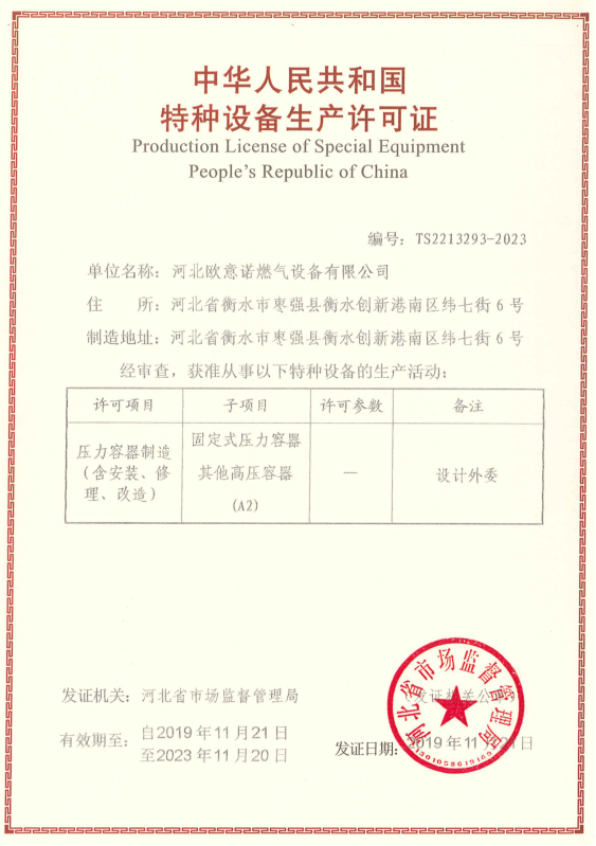
Dec . 06, 2024 11:14
Back to list
Safety Considerations for Natural Gas Valves and Their Essential Role in Energy Systems
Understanding Natural Gas Safety Valves An Essential Component for Safety
As industries and households increasingly rely on natural gas for heating, cooking, and power generation, the importance of safety measures in gas systems cannot be overstated. Among the critical components designed to protect both people and property from potential hazards is the safety valve. This article will delve into the role of natural gas safety valves, their types, functions, and the significance of regular maintenance.
What Are Natural Gas Safety Valves?
Natural gas safety valves are specialized devices designed to control the pressure of gas within pipelines and appliances. They act as a fail-safe mechanism to prevent excessive pressure buildup, which can lead to dangerous situations, including explosions or gas leaks. When the pressure exceeds a predetermined threshold, these valves automatically open to release excess gas, thus ensuring a safe working environment.
Types of Natural Gas Safety Valves
There are several types of safety valves used in natural gas systems, each serving a unique function
1. Relief Valves These valves are designed to relieve pressure in the system. If the pressure exceeds the safe limit, the relief valve opens, allowing excess gas to escape. This prevents the pressure from reaching dangerous levels.
2. Shut-off Valves These valves are used to cut off the gas supply in emergencies. They can be operated manually or automatically and are critical in preventing gas flow during a leak or system failure.
3. Regulating Valves Regulating valves manage the pressure of the gas flowing into a system. By maintaining a consistent pressure, they help ensure safe and optimal operation of gas appliances and equipment.
4. Check Valves Check valves allow gas to flow in one direction while preventing backflow. This function is vital in maintaining system integrity and preventing gas from flowing back into the supply line.
Functions of Natural Gas Safety Valves
natural gas safety valve

The primary functions of safety valves in natural gas systems include
- Pressure Control By releasing excess gas when needed, safety valves maintain safe pressure levels within gas pipelines and appliances, reducing the risk of overpressure situations.
- Leak Prevention In the event of a leak, shut-off valves can quickly stop the flow of gas, mitigating the potential for fires or explosions.
- System Integrity Safety valves help ensure that gas systems operate efficiently and within safe parameters, extending the life of equipment and reducing maintenance costs.
Importance of Regular Maintenance
While natural gas safety valves are designed to function reliably, regular maintenance is crucial to ensure their effectiveness. Here are a few reasons why maintenance should not be overlooked
- Preventive Measures Regular inspections and maintenance can identify wear and tear, corrosion, or malfunctioning components before they lead to severe problems.
- Compliance with Regulations Many regions have regulations governing the installation and maintenance of gas systems. Regular checks help ensure compliance and avoid potential legal issues.
- Peace of Mind Knowing that safety valves are functioning correctly provides peace of mind for homeowners and businesses alike. Regular maintenance can significantly reduce the risk of accidents involving natural gas.
Conclusion
Natural gas safety valves play an integral role in maintaining safety in gas systems. By preventing overpressure situations, shutting off gas in emergencies, and ensuring proper flow direction, these valves protect both lives and property. However, their effectiveness hinges on regular maintenance and inspections. Whether in a residential setting or an industrial application, it is crucial to prioritize the upkeep of safety valves to ensure a safe and efficient natural gas system. Investing in the proper maintenance of these essential devices not only aligns with safety regulations but also fosters a responsible approach to energy consumption, showcasing a commitment to safety and sustainability in our daily lives.
Latest news
-
Safety Valve Spring-Loaded Design Overpressure ProtectionNewsJul.25,2025
-
Precision Voltage Regulator AC5 Accuracy Grade PerformanceNewsJul.25,2025
-
Natural Gas Pressure Regulating Skid Industrial Pipeline ApplicationsNewsJul.25,2025
-
Natural Gas Filter Stainless Steel Mesh Element DesignNewsJul.25,2025
-
Gas Pressure Regulator Valve Direct-Acting Spring-Loaded DesignNewsJul.25,2025
-
Decompression Equipment Multi-Stage Heat Exchange System DesignNewsJul.25,2025

